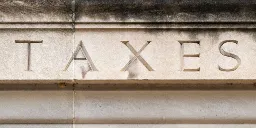IRS vows to digitize all taxpayer documents by 2025
IRS vows to digitize all taxpayer documents by 2025

arstechnica.com
IRS vows to digitize all taxpayer documents by 2025 [Updated]

IRS vows to digitize all taxpayer documents by 2025::All documents will be digitized as soon as they arrive at the IRS.
